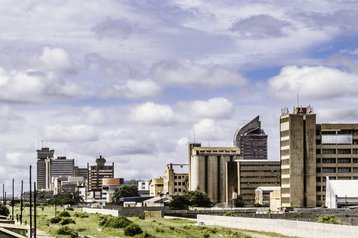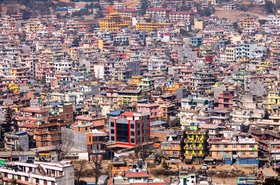The Global System for Mobile Association of Zambia (GSMAZ) has warned that rolling blackouts in the country are hurting the country's mobile network operators.
GSMAZ, which represents MTN Zambia, Airtel Zambia, and Zamtel, said that the prolonged outages, some lasting as long as 12 hours, are impacting the quality of service that the telcos can offer, as reported by Connecting Africa.
"The telecommunications sector is one of Zambia's key economic enablers for sustained business growth and social development," said GSMAZ in a statement on behalf of the carriers.
Severe climate change in the country has led to Zambia's state-owned power utility ZESCO, which provides energy to more than 80 percent of the country, to implement rolling blackouts since last year. The length of these blackouts has increased from six hours to 12 hours at the time
The load-shedding has meant that Zambian operators have felt the full impact, with the combined 3,500 tower sites connected to the country's national grid.
"The power backup at the telecom sites is generally designed to last up to a maximum of four hours, however, owing to the current unprecedented 13 to 14 hours of daily load shedding, there is a huge cost variance not only for the fuel and generator maintenance but also for the associated fuel delivery logistics for the mobile network operators," noted GSMAZ.
"Though backup power is available at these sites through generators, instances when there is electricity downtime, and extended load shedding hours, our provision of quality of service is compromised as the generators now require constant refueling and more frequent servicing cycles."
Climate change has seen the country's largest man-made lake by volume, Lake Kariba, lose more than 98 percent of its water. The lake previously generated 1,080MW of electricity output for Zambia and 1,050MW for Zimbabwe.
The issue of load-shedding isn't unique to Zambia, as South Africa has also grappled with the issue for years.
South Africa has suffered from lengthy outages in the past due to its aging infrastructure, which relies on coal-fired power plants and prone to breakdowns.
The country has regularly had to implement load-shedding measures, with South African power utility Eskom introducing Stage 6 power cuts in the past. Eskom effectively cut 6,000MW from the national grid, meaning six hours without power for South Africans.
It's led the country's carriers to invest heavily in infrastructure to combat the blackouts. In April, MTN pledged to invest $101 million in generators, batteries, and renewable energy.
In August, Vodacom signed a Virtual Wheeling agreement with utility provider Eskom as part of efforts to improve South Africa's energy crisis.
Vodacom said the agreement will add capacity to the nation’s power grid, while also enabling the operator to move closer to its own goal of sourcing 100 percent of its electricity demand from renewable energy sources by 2025.







